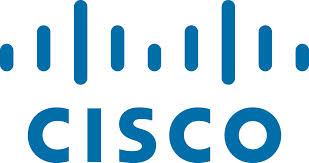I can't seem to face up to the facts,
I'm tense and nervous and I can't relax...
Recognize the lyrics? Of course you do. But if you don't, it's from Psycho Killer, an early tune from one of my fave bands, the Talking Heads.
Like the title of my post? Clever, huh? Starts making even more sense when you start with the lyrics (did you pick up that other subtle Heads innuendo?). Those first two lines say it all for me when it comes to this Skype-killer storyline that started early last week with Om Malik's post.
Big telcos are a bit on edge these days, to say the least, and even though they still have the subscribers, their hold on reality is becoming increasingly tenuous. Fa fa fa fa fa, fa fa fa fahh...
I generally stay away from these big news items as I'm usually way too slow off the mark to comment on a timely enough basis. This time around was no exception, and there sure has been a lot of posting about it over the week. Some of it has been on the positive side, such as Erik Lagerway or Gary Kim, and some of it has dismissed what the telcos are thinking as ridiculous, as with Rich Tehrani.
A review of these posts tells the story, but here's the basic idea. Big telcos like AT&T, British Telecom and Deutsche Telecom are supposedly working together to come up with a common platform of their own to support wireless VoIP. It's a dream for the peering community, because they need the volumes of the incumbents make their exchange platforms economically viable.
Anyhow, this story is more about the intended losers than the winners. The real target is Skype, and if there's any substance to this grand plan, it's pretty strong validation that Skype still matters and is seen as a real threat to the incumbents. They may see Skype as siphoning profitable minutes of their networks, but I see it more about making the pie bigger for everyone. Long term, we all know that voice is going to zero, and the name of the game is connectivity and applications.
Whether this consortium comes together or not, the story raises an underlying issue about the dual-edged nature of Skype. Its early runaway success was about ease of use, which was due in large part to Skype's secret sauce, so to speak. Their technology was - and is - proprietary, making it difficult to copy, but likewise for integrating with other solutions.
Skype has managed to sustain its incredible growth with a proprietary solution while most of the telecom world has moved to adopt SIP, a standards-based protocol that allows for seamless interoperability. As SIP increasingly becomes the de facto protocol for VoIP, once big telcos cross that line and agree to peer their traffic, they will potentially have an answer for Skype.
I'm not saying that's going to happen any time soon, and if you side with Rich's post, you'll be of this mind. Still, even just recognizing this potential should be a wakeup call for the telcos to see that with SIP, they have incredible opportunities to do things that Skype can't do. Don't get me wrong - I'm a big Skype fan, and I'm not trying to create a recipe for their demise - far from it.
Instead, I'm trying to tie two ideas together that I think add something to this storyline. Most of the blog and media coverage about the "Skype killer" has been focused on the big guys ganging up on the newcomer and settling things once and for all. I get that - we all do, for better or for worse.
That's where the Psycho Killer idea kicked in for me. This ganging-up tactic strikes me as being very defensive and destructive - it's what you do when you're tense and nervous and can't relax, right?
To me, facing up to the facts should be more about building on your strengths rather than exploiting the weaknesses of your competitors. In other words, don't worry about trying to squash Skype. Their revenues in the big scheme of things are insignificant, and they really don't own the customer the way telcos do. It's a bit like all the effort some telcos are putting into their efforts to take down Vonage - it's negative energy that won't make you any friends down the line.
Wouldn't it be better to not worry about Skype, and just focus on building on the inherent advantages of what you have today, such as SIP? Skype doesn't have this, and if you can turn it to your advantage, it doesn't matter what Skype does.
Why am I saying all this? Well, because I want to steer you to a nice article written for me by the CEO of SightSpeed for the IP Convergence TV portal, which I'm the Editor of. CEO Peter Csathy prepared a thought leadership piece for our portal about the virtues of SIP and interoperability for applications such as video.
Following an email exchange with Peter the other day, we both realized that since this article was just published about 2 weeks ago, it was very timely for this Skype item. To me, it really embodies what I'm getting at here as a perfect example of how service providers can embrace SIP-based applications to add value for subscribers - regardless of what Skype is doing.
While it's true that Skype can easily match most of what any individual telco can bring to market, what they can't do is federate their offerings with other operators. That's the next big step for carriers to take, and potentially, it could be a Skype-killer. I don't really want to go there, but I will say, they can't even consider taking a step like that without first having a common basis for providing services - and that's what protocols like SIP are all about. In that regard, Peter's article is a tangible example of how carriers should be thinking. They have the solution within their grasp - and they don't have to take Skype out of the picture along the way.
On the other hand, I agree with Ken Camp's view that big telcos have not been very good innovators since the rise of the Internet, so if left to their own devices, it's going to take a huge leap of will and vision to go down the road Peter is advocating. On the other hand, the competitive environment is far more challenging now and the pace of change is simply too fast for telcos to try and catch up on their own and try to out-innovate new players like Skype. SIP is here now, and it seems to me that the sooner the telcos start using these tools to their advantage, the better.
So, thanks for connecting the dots, Peter, and I hope all of you out there give his article a read. And remember where you saw it - exclusively at IP Convergence TV - and we've got lots more thought leadership like this, so come back and spend some time there if this is your cup of tea.
Technorati tags: Skype, Jon Arnold, Om Malik, Rich Tehrani,SIP, SightSpeed, Peter Csathy, Ken Camp, IP Convergence TV
Posted by jonarnold at May 12, 2008 08:52 AM
Comments
To repeat from a Skype Journal post I just completed prior to seeing this (and updated upon seeing this):
Sorry, Jon. ... As for SIP as the common denominator for the telcos to make a play, just keep in mind that Skype is one of the world's largest users of SIP -- for its SkypeIn and SkypeOut services. They understand the technology, the protocol and where it can play a role; they can turn up the "volume" when it's appropriate in a "real time conversation" market context. Just because the technology and protocols are there does not a business make. (Skype's GM for Audio and Video was involved in the early evolution of SIP during five years spent at Microsoft. He recalls what the dream was and what today's reality is for SIP.)
http://skypejournal.com/blog/2008/05/whats_next_in_ip_communication.html
Posted by: Jim Courtney at May 14, 2008 10:01 AM











No comments:
Post a Comment